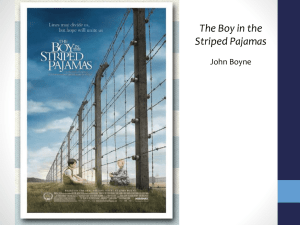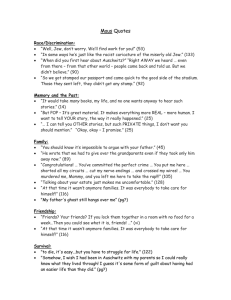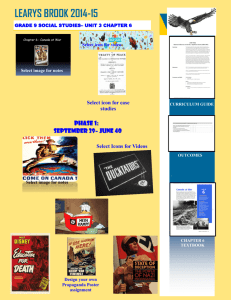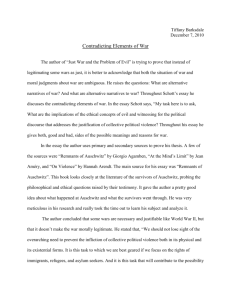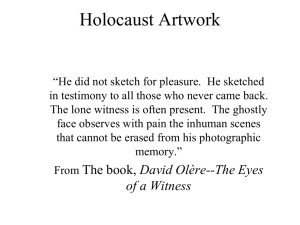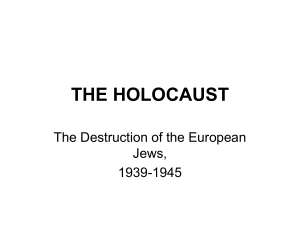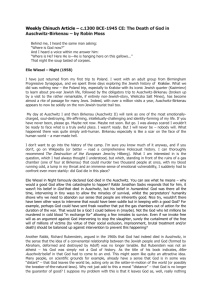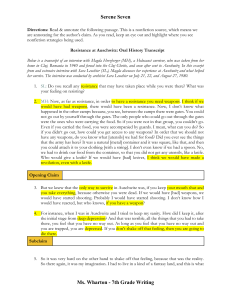Evil Too Great to Grasp -- or Remember
advertisement
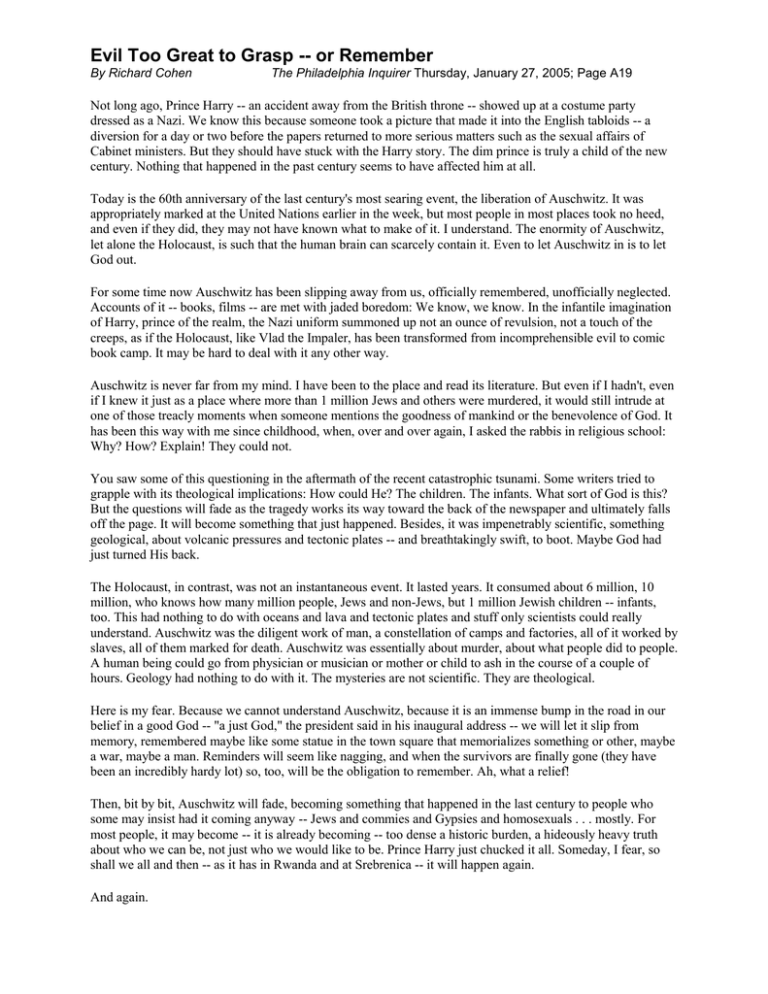
Evil Too Great to Grasp -- or Remember By Richard Cohen The Philadelphia Inquirer Thursday, January 27, 2005; Page A19 Not long ago, Prince Harry -- an accident away from the British throne -- showed up at a costume party dressed as a Nazi. We know this because someone took a picture that made it into the English tabloids -- a diversion for a day or two before the papers returned to more serious matters such as the sexual affairs of Cabinet ministers. But they should have stuck with the Harry story. The dim prince is truly a child of the new century. Nothing that happened in the past century seems to have affected him at all. Today is the 60th anniversary of the last century's most searing event, the liberation of Auschwitz. It was appropriately marked at the United Nations earlier in the week, but most people in most places took no heed, and even if they did, they may not have known what to make of it. I understand. The enormity of Auschwitz, let alone the Holocaust, is such that the human brain can scarcely contain it. Even to let Auschwitz in is to let God out. For some time now Auschwitz has been slipping away from us, officially remembered, unofficially neglected. Accounts of it -- books, films -- are met with jaded boredom: We know, we know. In the infantile imagination of Harry, prince of the realm, the Nazi uniform summoned up not an ounce of revulsion, not a touch of the creeps, as if the Holocaust, like Vlad the Impaler, has been transformed from incomprehensible evil to comic book camp. It may be hard to deal with it any other way. Auschwitz is never far from my mind. I have been to the place and read its literature. But even if I hadn't, even if I knew it just as a place where more than 1 million Jews and others were murdered, it would still intrude at one of those treacly moments when someone mentions the goodness of mankind or the benevolence of God. It has been this way with me since childhood, when, over and over again, I asked the rabbis in religious school: Why? How? Explain! They could not. You saw some of this questioning in the aftermath of the recent catastrophic tsunami. Some writers tried to grapple with its theological implications: How could He? The children. The infants. What sort of God is this? But the questions will fade as the tragedy works its way toward the back of the newspaper and ultimately falls off the page. It will become something that just happened. Besides, it was impenetrably scientific, something geological, about volcanic pressures and tectonic plates -- and breathtakingly swift, to boot. Maybe God had just turned His back. The Holocaust, in contrast, was not an instantaneous event. It lasted years. It consumed about 6 million, 10 million, who knows how many million people, Jews and non-Jews, but 1 million Jewish children -- infants, too. This had nothing to do with oceans and lava and tectonic plates and stuff only scientists could really understand. Auschwitz was the diligent work of man, a constellation of camps and factories, all of it worked by slaves, all of them marked for death. Auschwitz was essentially about murder, about what people did to people. A human being could go from physician or musician or mother or child to ash in the course of a couple of hours. Geology had nothing to do with it. The mysteries are not scientific. They are theological. Here is my fear. Because we cannot understand Auschwitz, because it is an immense bump in the road in our belief in a good God -- "a just God," the president said in his inaugural address -- we will let it slip from memory, remembered maybe like some statue in the town square that memorializes something or other, maybe a war, maybe a man. Reminders will seem like nagging, and when the survivors are finally gone (they have been an incredibly hardy lot) so, too, will be the obligation to remember. Ah, what a relief! Then, bit by bit, Auschwitz will fade, becoming something that happened in the last century to people who some may insist had it coming anyway -- Jews and commies and Gypsies and homosexuals . . . mostly. For most people, it may become -- it is already becoming -- too dense a historic burden, a hideously heavy truth about who we can be, not just who we would like to be. Prince Harry just chucked it all. Someday, I fear, so shall we all and then -- as it has in Rwanda and at Srebrenica -- it will happen again. And again.
